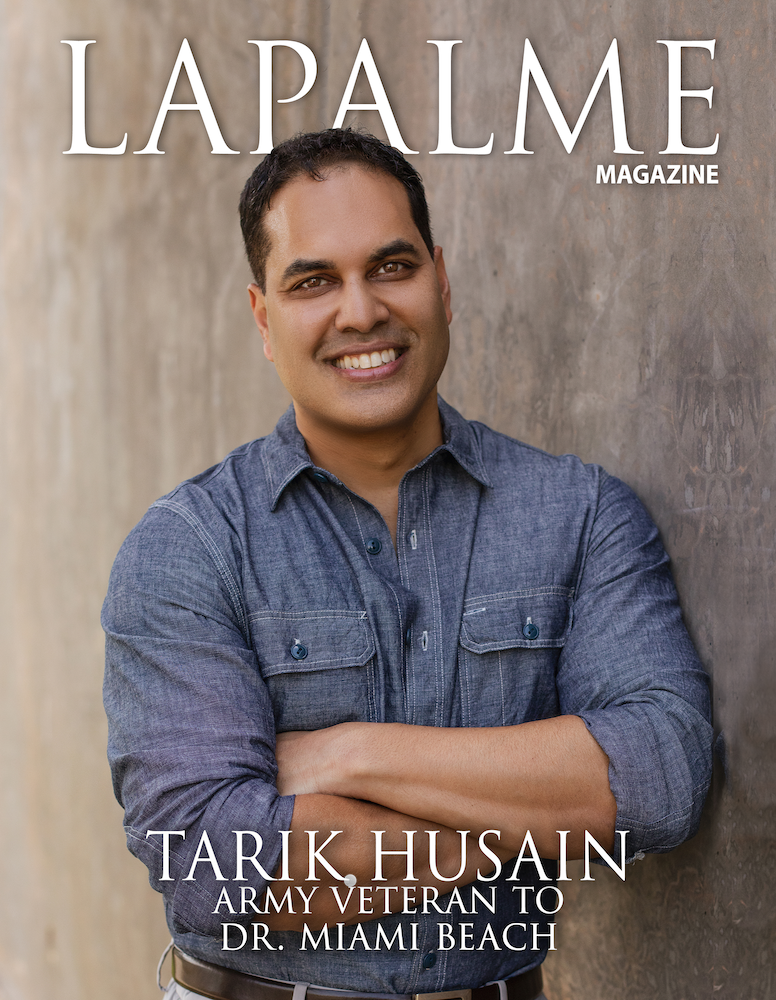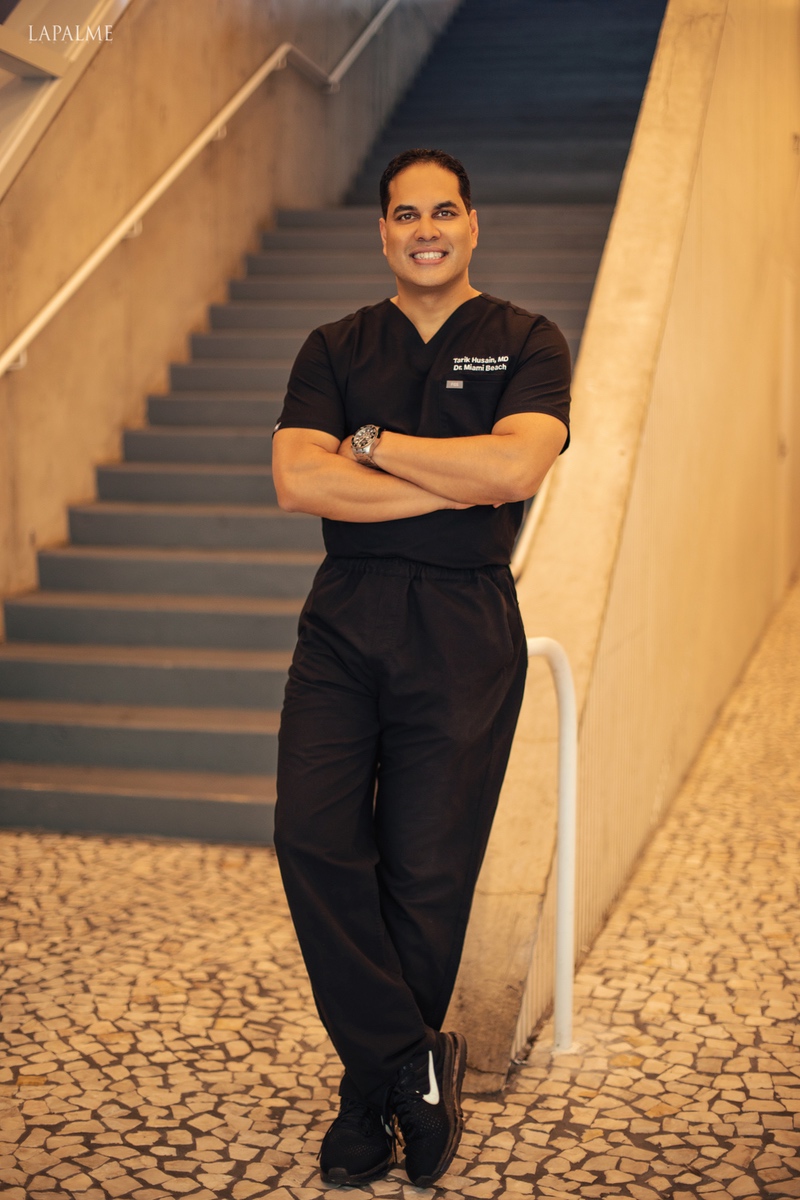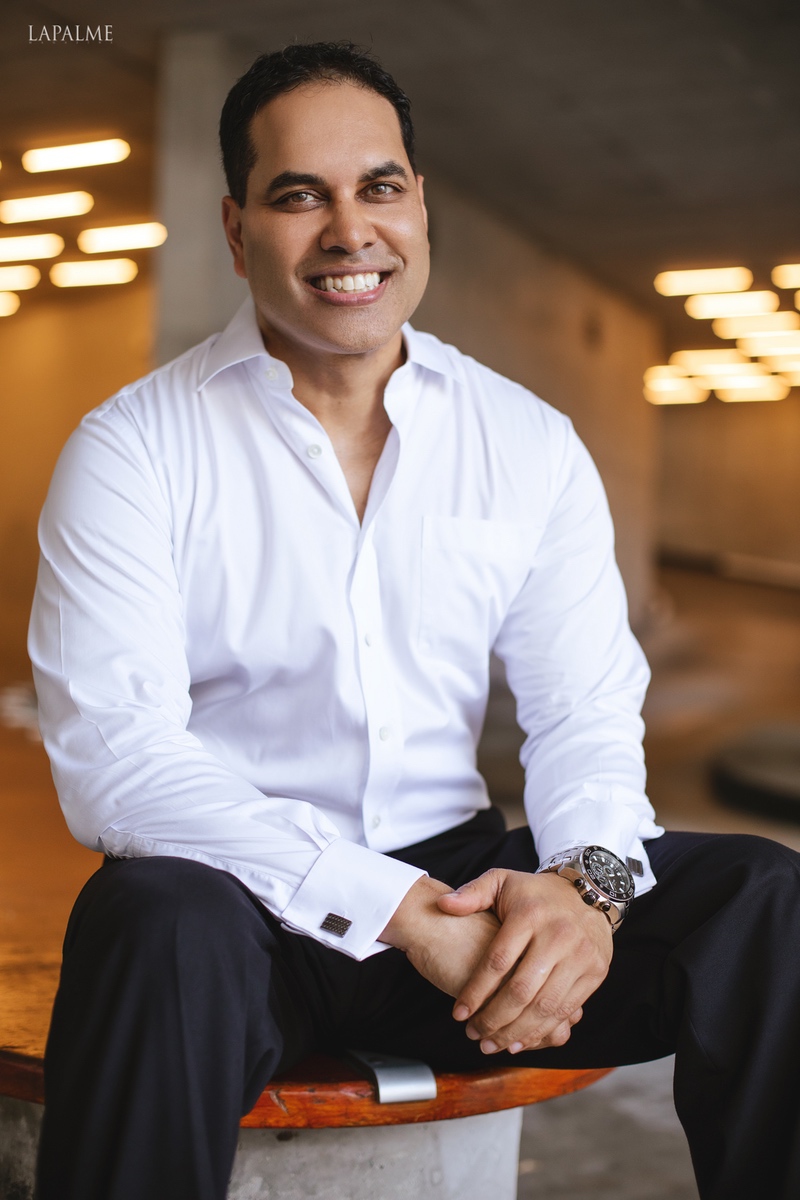
Dr Tarik Husain is a war hero, sportsman, and quadruple board-certified plastic/aesthetic plastic surgeon with a specialty in hand surgery. He recently sat down with Lapalme magazine to discuss the extensive education, his war efforts as a surgeon, and the many nuances that turned him into Miami Beach’s premier plastic surgeon and the president of the Miami Society of Plastic Surgeons.
When you were growing up did you always want to be a surgeon? What was the turning point? I always enjoyed using my hands as a child (models, puzzles, etc.), and sports during my adolescent years. I was given a guaranteed acceptance to medical school while I was in high school. After I graduated undergraduate with a degree in biomedical engineering, I was tempted by the world of investment banking and introductory six-figure salaries being 21 years old, but ultimately decided I would go the path of what was extended education, and also what I believed to be a better professional satisfaction in medicine and making people feel better.
After studying at USC you went into the military. How important was it for you to serve our country and as a doctor in the army? I think it was a very validating experience being the son of an immigrant family from Bangladesh. My father faced some difficult situations at work and after he received my first military photograph, he proudly displayed it on his desk, so all his colleagues knew he was “American.” For myself as well, as we fought the war on terror, and with the last name Husain, it was liberating to know you could have a foreign last name, be an American, and fight for our great country!

What was the biggest takeaway from your service abroad treating patients in Iraq, Afghanistan, Germany, and Korea? Treating these patients humbled me. It was an honor to take care of soldiers who were injured fighting to protect our country’s interests in foreign lands. It also made me grow up fast as a surgeon because I was all alone when that chopper flew in and unloaded many Americans with arms and legs in pieces from IEDs (improvised explosive devices). I also matured as a surgeon by being second in command of a Combat Support Hospital, in charge of approximately 250 personnel that included soldiers, nurses, and doctors. All the doctors reported to me, so it was my firsthand experience as a physician leader.
We know that orthopedics is your specialty but you are also trained in sports medicine. Can you explain what that entails? Sports medicine is a branch of medicine that deals with the treatment of injuries related to sports and exercise. Common sports injuries are joint sprains, ligament tears, and fractures. I did my orthopedic surgery residency in the military, and treating soldiers is equivalent to treating athletes.
What does it mean to be a quadruple-certified plastic surgeon? I am quadruple board certified which means I have achieved board certification in four fields of medicine. I am board certified in orthopedic surgery and plastic surgery. In addition, I am subspecialty certified in hand surgery and sports medicine.
You are becoming the voice of safety in plastic surgery. Being Dr. Miami Beach and South Florida as a popular destination for procedures, what do you tell potential patients to look out for? Plastic surgery is a field that can be very deceiving. There are a lot of smokescreens out there, and not even physicians know the difference between a “cosmetic” surgeon and a “plastic” surgeon. “Cosmetic surgery” is not a specialty recognized by the ABMS (American Board of Medical Specialties). However Plastic Surgery is a recognized specialty since 1941. Some “cosmetic” surgeons have never done a residency in a surgical specialty recognized by the ABMS. When patients look for a plastic surgeon, they can be fooled by going to a doctor, or sometimes not even a doctor, who did not receive appropriate plastic surgery training.
What are 3 tips to look out for when finding the right doctor? Tip #1 – Do not go to any board-certified physician. Go to a board-certified plastic surgeon. Sometimes physicians may be boarded in internal medicine or emergency medicine and still claim to be “cosmetic surgeons.” Tip #2- If it sounds too good to be true, it probably is not the real thing. Getting 10 areas of liposuction for a price that seems too low, might be a sign of a surgeon not appropriately trained, or a lack of safety measures to control costs. Think about it – do you want to go to the lowest-priced facelift surgeon in town? Tip #3 – Ask your surgeon, if they have a complication, do they have credentials at a local hospital to take care of their patient? If your surgeon just dumps his/her patients in the ER but does not take responsibility for their unexpected outcomes, that is abandoning the patient. When a patient has credentials in a hospital, it also means his/her training must have been verified.

As president of the Miami Society of Plastic Surgeons, what is your agenda? What is the goal of the society? As president of the Miami Society of Plastic Surgeons, my goal is to advocate for patient safety. We restrict our membership to not only just board-certified plastic surgeons, but ones who we review carefully in terms of their outcomes, complications, morals, and ethics. Every member must be voted upon for membership.
3 words to describe yourself as a surgeon and your solo practice. The 3 words I would use to describe myself as a surgeon would be: Leader, Skilled, and Ethical
When you aren’t educating other surgeons, operating, and seeing clients, what are your favorite past times? Favorite hobbies include mixed martial arts training, snowboarding, running, lifting weights, and jet ski riding!
Follow Tarik at @dr.miamibeach and drmiamibeach.com
Photo credit: Jahmar Assani
- Newport Beach’s Hottest New Event Venue, Opened July 13. - July 23, 2024
- MINNOW AT THE CROWS NEST - July 2, 2024
- *NSYNC’s Chris Kirkpatrick and MTV’s Brian McFayden, Launch Season 2 of Hit Podcast, “Name Drop.” - June 22, 2024
